|
|
|
|
Ivone Gebara, Camaragibe, Brazil
Knowing the Human, Knowing the Divine for the Human: Perspectives from Vulnerable Corners of Today's World
Saturday, November 17, 11:45 AM–12:45 PM
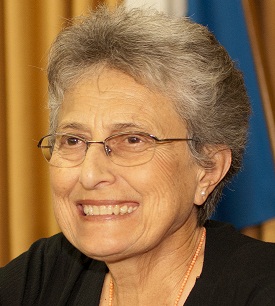 Theologians are people who often think about the world and do their work in a direction that they assume to be aimed at justice. However, thinking about a just world, even while taking injustices as its point of departure, presupposes the possibility of a world without injustice. This ideal tends to be a more or less abstract construction, given that the multiplicity of factors affecting the viability of a world without injustice is immense. The challenge of articulating for today’s world both a hope in the instauration of justice and the immediacy of the torments of injustice is a challenge theologies/theologians cannot avoid. Gebara’s reflections will attempt to articulate some facets of that complex and old quandaries that reemerge with new contours in our contemporary world. Theologians are people who often think about the world and do their work in a direction that they assume to be aimed at justice. However, thinking about a just world, even while taking injustices as its point of departure, presupposes the possibility of a world without injustice. This ideal tends to be a more or less abstract construction, given that the multiplicity of factors affecting the viability of a world without injustice is immense. The challenge of articulating for today’s world both a hope in the instauration of justice and the immediacy of the torments of injustice is a challenge theologies/theologians cannot avoid. Gebara’s reflections will attempt to articulate some facets of that complex and old quandaries that reemerge with new contours in our contemporary world.
|
|
|
|
|
|
|
|
|
|
Otto Maduro, Drew University
Presidential Address — Reflections on Epistemology, Ethics, and Politics in the Study of the Religious "Stranger"
Saturday, November 17, 8:00 PM–9:00 PM
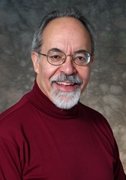 Scientific knowledge in general — and religious studies in particular — are nowadays carried out in a global cultural environment where concern and compassion toward the vulnerable, the weak, and the victims of violence and marginalization are increasingly devalued as impractical weaknesses, whereas indifference, callousness, and insensitivity in their regard seem to have become the new objectivity, the new scientificity, the new normalcy — including in religious discourse and public policy. Scientific knowledge in general — and religious studies in particular — are nowadays carried out in a global cultural environment where concern and compassion toward the vulnerable, the weak, and the victims of violence and marginalization are increasingly devalued as impractical weaknesses, whereas indifference, callousness, and insensitivity in their regard seem to have become the new objectivity, the new scientificity, the new normalcy — including in religious discourse and public policy.
In this address, Maduro invites us to reflect on the need to appreciate and explore the complex interconnections among: 1) Our ways of knowing, of determining what is worth knowing, and of judging and using knowledge and expertise (epistemology); 2) Our values, priorities, and urgencies (ethics); and 3) The power structures, dynamics, allegiances, and interests in which we are involved and that bind our knowledge and our ethics (politics) — and how these interconnections orient and shape, among other things, our perceptions of the other, the alien, the stranger, and their religious ways.
This invitation is made while underscoring the increasingly inimical environment immigrants to the United States find themselves after 9/11. The environment has become even harsher since the onset of the current financial crisis — an environment where evictions, detentions, workplace raids, late-night home searches, job firings, school expulsions, forced family separations, police abuse, posse attacks, deportations, denial of services, homelessness, discrimination of all sorts, and the deep fears this treatment all raises are progressively becoming part and parcel of the daily lives of immigrants, especially that of poor, recent, undocumented, dark-skinned, non-English-speaking immigrants. This is an environment where religious traditions and faith communities are carried on with a novel urgency and vulnerability.
|
|
|
|
|
|
Plenary Panel: Migrants’ Religions under Imperial Duress: Approaches from the Sociology and Anthropology of Religions
Sunday, November 18, 11:45 AM–12:45 PM
Some of the questions raised by this panel will include: How do imperial policies (economic, military, cultural, political, etc.) elicit migrations both to/from the metropolitan centers of our world? What are some of the ways in which these policies impact the religious allegiances and expressions (theological, ritual, ethical, etc.) of migrant populations? Likewise, how do such policies affect the migration of religious traditions, both to/from the metropolitan centers of our world? How do migrant populations engage in religious protest against and/or in resistance to the related imperial policies? And, finally, the panelists will share their ethical reflections concerning the plight of migrants under the pressure of global powers.
Carolyn Chen, Northwestern University
Accidental Pilgrims: Imperialism, Migration, and Religion among Contemporary Taiwanese and Korean Christian Immigrants in the United States
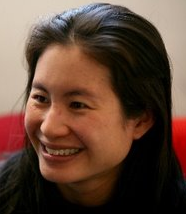 Most East Asians who have immigrated to the United States since 1965 have done so for mundane reasons, yet the immigration experience has led a significant number of them to convert to Christianity. Chen calls these “accidental pilgrims,” people who begin as immigrants but become pilgrims through the experience of immigration. Both the migration process to the United States and the narratives of these accidental pilgrims appear to be very individual and personal. Chen argues, however, that contemporary Korean and Taiwanese immigration is a product of post-war American imperialism. This paper discusses how processes of imperialism shape the religious experiences of contemporary East Asian immigrants to the United States. Most East Asians who have immigrated to the United States since 1965 have done so for mundane reasons, yet the immigration experience has led a significant number of them to convert to Christianity. Chen calls these “accidental pilgrims,” people who begin as immigrants but become pilgrims through the experience of immigration. Both the migration process to the United States and the narratives of these accidental pilgrims appear to be very individual and personal. Chen argues, however, that contemporary Korean and Taiwanese immigration is a product of post-war American imperialism. This paper discusses how processes of imperialism shape the religious experiences of contemporary East Asian immigrants to the United States.
Jacqueline Hagan, University of North Carolina
Migration Miracle: Faith, Hope, and Meaning on the Undocumented Journey
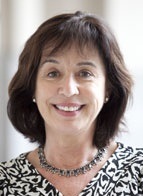 By and large, scholarship on religion and migration has focused on the role of religion in immigrant incorporation, with an eye toward explaining how religious affiliation and participation help immigrants face the challenges of adaptation in a new land. While the classic and contemporary literature offers abundant accounts of the buffering and integrative roles of religion in immigrant incorporation, we know very little about how religion interacts with earlier stages of the migration experience, both in sending communities and along the journey. Drawing on 400 interviews with Catholic and Protestant migrant women and men, 100 interviews with religious leaders, and fieldwork in Central America and Mexico, this paper tells the story of how religion permeates the entirety of the migration experience, from decision making and departure through the dangerous undocumented journey from their home communities in Central America and Mexico north to the United States, and beyond. By and large, scholarship on religion and migration has focused on the role of religion in immigrant incorporation, with an eye toward explaining how religious affiliation and participation help immigrants face the challenges of adaptation in a new land. While the classic and contemporary literature offers abundant accounts of the buffering and integrative roles of religion in immigrant incorporation, we know very little about how religion interacts with earlier stages of the migration experience, both in sending communities and along the journey. Drawing on 400 interviews with Catholic and Protestant migrant women and men, 100 interviews with religious leaders, and fieldwork in Central America and Mexico, this paper tells the story of how religion permeates the entirety of the migration experience, from decision making and departure through the dangerous undocumented journey from their home communities in Central America and Mexico north to the United States, and beyond.
Manuel Vásquez, University of Florida
Faith-Based Organizations, Transnational Immigration, and the New Panopticon
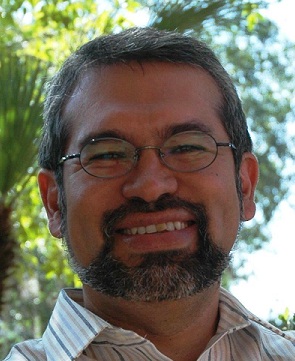 Vásquez draws from Michel Foucault’s work on governmentality and biopower to argue that the recent polarizing debates about unauthorized immigration point to the rise of a new global regime of visibility and control of mobility. This regime is tightly intertwined with what geographer David Harvey has termed globalization’s “time-space compression,” as well as with the widening and deepening of a crisis-prone neoliberal capitalism and the war on terrorism. He argues that in the face of these new power dynamics, faith-based organizations may play (and are indeed in some cases already playing) the role of grassroots “subaltern counterpublics” (Nancy Fraser), where alternative identities and forms of dwelling, “presencing,” and belonging emerge against discourses that dehumanize not only immigrants but also the native-born. Vásquez draws from Michel Foucault’s work on governmentality and biopower to argue that the recent polarizing debates about unauthorized immigration point to the rise of a new global regime of visibility and control of mobility. This regime is tightly intertwined with what geographer David Harvey has termed globalization’s “time-space compression,” as well as with the widening and deepening of a crisis-prone neoliberal capitalism and the war on terrorism. He argues that in the face of these new power dynamics, faith-based organizations may play (and are indeed in some cases already playing) the role of grassroots “subaltern counterpublics” (Nancy Fraser), where alternative identities and forms of dwelling, “presencing,” and belonging emerge against discourses that dehumanize not only immigrants but also the native-born.
Albert Wuaku, Florida International University
Halouba’s Struggles: Haitian Migrants and Vodou Practice in Miami
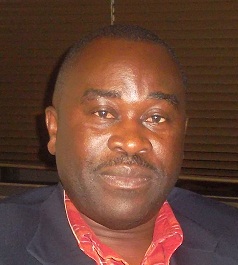 The turmoil that overt and covert interventions of the United States and other global powers have created in their homeland, Haiti, as well as the insecurities that accompany their lives as migrants in south Florida, have precipitated Vodou’s relevance for some Haitians in Miami.At Halouba, a Hounfo or Vodou-worshipping space, created in 1994 at Miami’s Little Haiti, worshippers tap the powers of Vodou spirits in the context of rituals to mitigate the negative impact of imperial policies on their lives. However, as an institution, Halouba must constantly struggle for survival. This is because of the weighty impact of state and national policies and public prejudice against Vodou. In this presentation Wuaku offers a discussion of Halouba’s history and ritual life, shedding light on the uncertainties that provided a motivation for Haitian migrants to create it and its continuous struggle for survival as an institution. He shows how Vodou practice for Haitian migrants has more to do with survival under the pressure of global powers than a mere expression of faith or performance of identity. Halouba is a testament to the peaceful, constructive ways in which Haitian migrants are creating, living, and transforming Vodou amid and despite imperial policies. Its fortunes, Wuaku suggests, are inextricably tied to the struggles of its creators, whose lives as migrants are no less disrupted than the lives of those they left behind in Haiti. The turmoil that overt and covert interventions of the United States and other global powers have created in their homeland, Haiti, as well as the insecurities that accompany their lives as migrants in south Florida, have precipitated Vodou’s relevance for some Haitians in Miami.At Halouba, a Hounfo or Vodou-worshipping space, created in 1994 at Miami’s Little Haiti, worshippers tap the powers of Vodou spirits in the context of rituals to mitigate the negative impact of imperial policies on their lives. However, as an institution, Halouba must constantly struggle for survival. This is because of the weighty impact of state and national policies and public prejudice against Vodou. In this presentation Wuaku offers a discussion of Halouba’s history and ritual life, shedding light on the uncertainties that provided a motivation for Haitian migrants to create it and its continuous struggle for survival as an institution. He shows how Vodou practice for Haitian migrants has more to do with survival under the pressure of global powers than a mere expression of faith or performance of identity. Halouba is a testament to the peaceful, constructive ways in which Haitian migrants are creating, living, and transforming Vodou amid and despite imperial policies. Its fortunes, Wuaku suggests, are inextricably tied to the struggles of its creators, whose lives as migrants are no less disrupted than the lives of those they left behind in Haiti.
|
|
|
|
Harvey Cox, Harvard University
From the Bottom and the Edges
Monday, November 19, 11:45 AM–12:45 PM
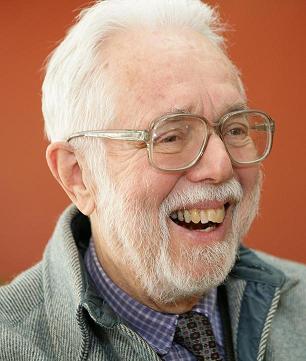 Cox will address how and why renewal, reform, and transformation movements in religion so often originate not in the center but on what the center thinks of as the periphery. He will discuss this from both a theological and a history-of-religions perspective, with historical examples, ending with some speculation about where this leaves us today. Cox will address how and why renewal, reform, and transformation movements in religion so often originate not in the center but on what the center thinks of as the periphery. He will discuss this from both a theological and a history-of-religions perspective, with historical examples, ending with some speculation about where this leaves us today.
|
|
|
|
|
|
|
![PDF-NOTE: Internet Explorer Users, right click the PDF Icon and choose [save target as] if you are experiencing problems with clicking.](http://rsnonline.org/templates/rsntemplate-smallmasthead/images/pdf_button.png)

![PDF-NOTE: Internet Explorer Users, right click the PDF Icon and choose [save target as] if you are experiencing problems with clicking.](http://rsnonline.org/templates/rsntemplate-smallmasthead/images/pdf_button.png)
